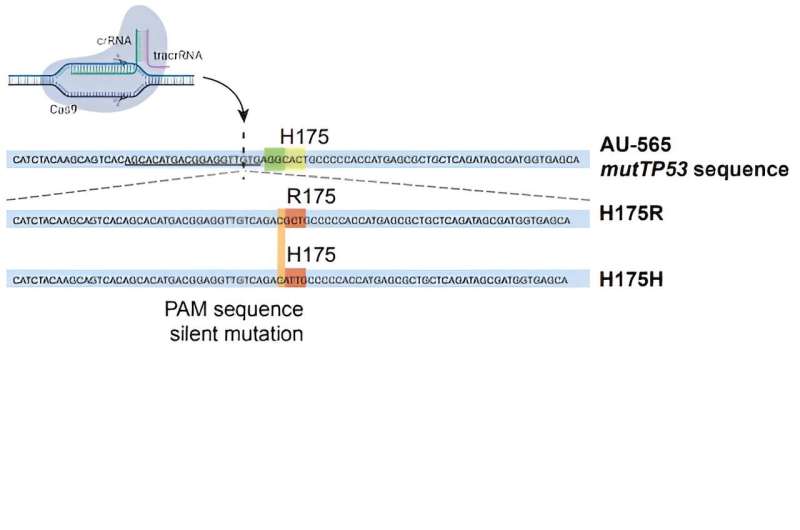This article has been reviewed according to Science X's editorial process and policies. Editors have highlighted the following attributes while ensuring the content's credibility:
fact-checked
peer-reviewed publication
trusted source
proofread
Cracking the code: Researchers unravel how mutant protein drives cancer growth

The p53 protein is a tumor suppressor that plays a crucial role in preventing the formation of cancerous cells. But when it mutates and becomes defective in cells, the protein can significantly boost a person's risk of cancer development.
In a first-of-its-kind study, researchers have revealed what behaviors of the mutated protein are critical for fueling tumor growth—a discovery that could offer new directions for the development of treatment options.
When it works properly, the p53 protein serves as a powerful defense mechanism against cancer development by ensuring that cells with compromised DNA either get repaired or removed from our body.
Mutations to this protein can be triggered by a variety of environmental factors—such as exposure to UV radiation—if the body's cell division process goes awry, or if they are genetically inherited.
These abnormalities can lead to a dysfunctional protein that has lost the crucial ability to regulate cellular responses that prevent tumor development and growth. This is known as loss-of-function.
Additionally, some researchers believe these mutations can also lead to a supercharged protein that helps cancerous cells survive and proliferate, known as gain-of-function.
In the new study, published in Cancer Discovery, researchers from WEHI and Trento University (Italy) have answered an age-old question by proving which function helps mutant p53 fuel tumor growth.
Associate Professor Gemma Kelly, a co-corresponding author of the paper, said understanding how exactly these mutations contribute to cancer is critical to understanding how to treat patients bearing cancers with the dysfunctional proteins.
"Our study has provided the first evidence to show that it is actually the loss-of-function that impacts cancer growth. We found no evidence of gain-of-function contributing to cancer growth," said Kelly, a Laboratory Head in WEHI's Blood Cells and Blood Cancer Division.
"This is significant because until now, there was not much evidence available to properly show whether it is the protein's loss or gain-of-function that spurs cancer growth.
"If you look at all cancers of humanity, about 50% of them have a mutation in p53. Specific cancers like those of the pancreas, lung and breast, commonly have defects in these proteins."
Unprecedented data exploration
The study utilized the powerful gene editing tool CRISPR to remove 12 different, mutated versions of the protein with reported gain-of-function effects. Researchers found there was no change to the behavior of cancer cells, in growth or response to chemotherapy.

Leveraging a significant collaboration with The University of Trento (Italy), the research team was also able to restore p53's normal functions that were lost when the protein mutated. They found this reduced cancer growth, in pre-clinical models.
First author Dr. Zilu Wang was able to use these models and data from the DepMap database in an in-depth way that had never been done before to consolidate the findings.
"Having these tools at my disposal allowed me to assess 157 different p53 mutations," Dr. Wang said.
"The mutations I looked at basically account for at least 90% of human cancers with defects in p53, which will provide crucial insight when informing the development of new anti-cancer strategies."
Future treatments
Co-corresponding author, Professor Andreas Strasser, said the findings could prevent hundreds of millions of dollars being wasted on developing ineffective drugs.
"There is research underway that is working towards finding the first therapeutics to target gain-of-function traits," Prof Strasser, Head of WEHI's Blood Cells and Blood Cancer Division, said.
"Our findings indicate there is no further merit in this therapeutic avenue and the focus needs to shift to restoring the mutant protein's lost function and normal tumor suppressor ability."
More information: Zilu Wang et al, Loss-of-function but not gain-of-function properties of mutant TP53 are critical for the proliferation, survival and metastasis of a broad range of cancer cells, Cancer Discovery (2023). DOI: 10.1158/2159-8290.CD-23-0402



















